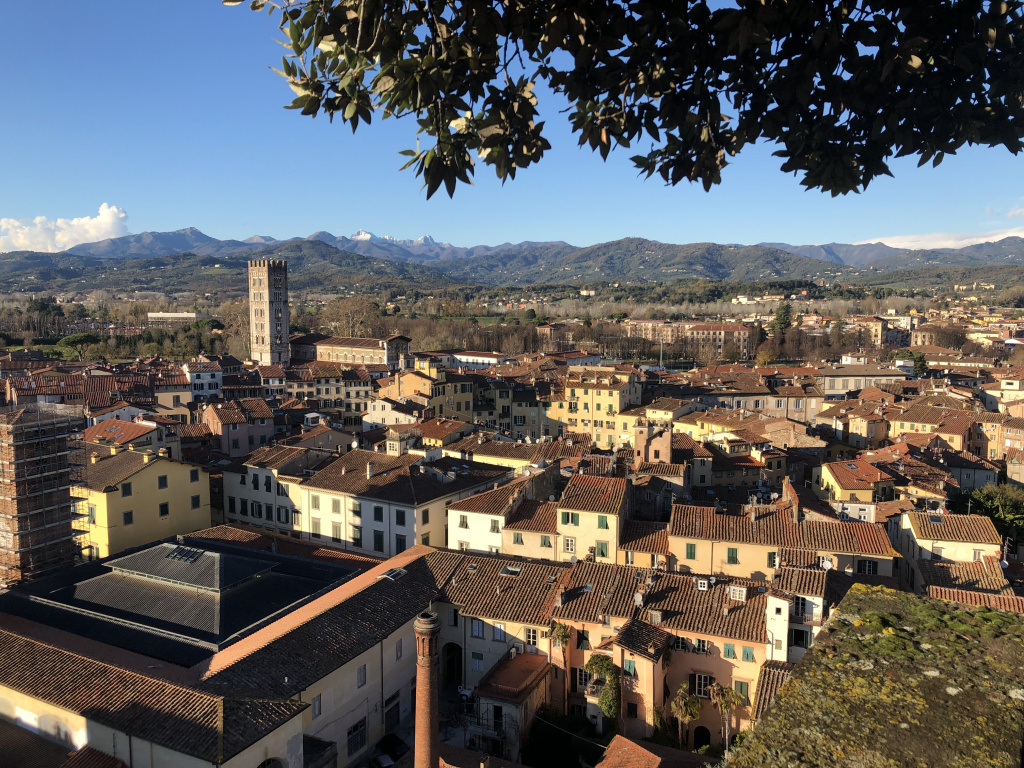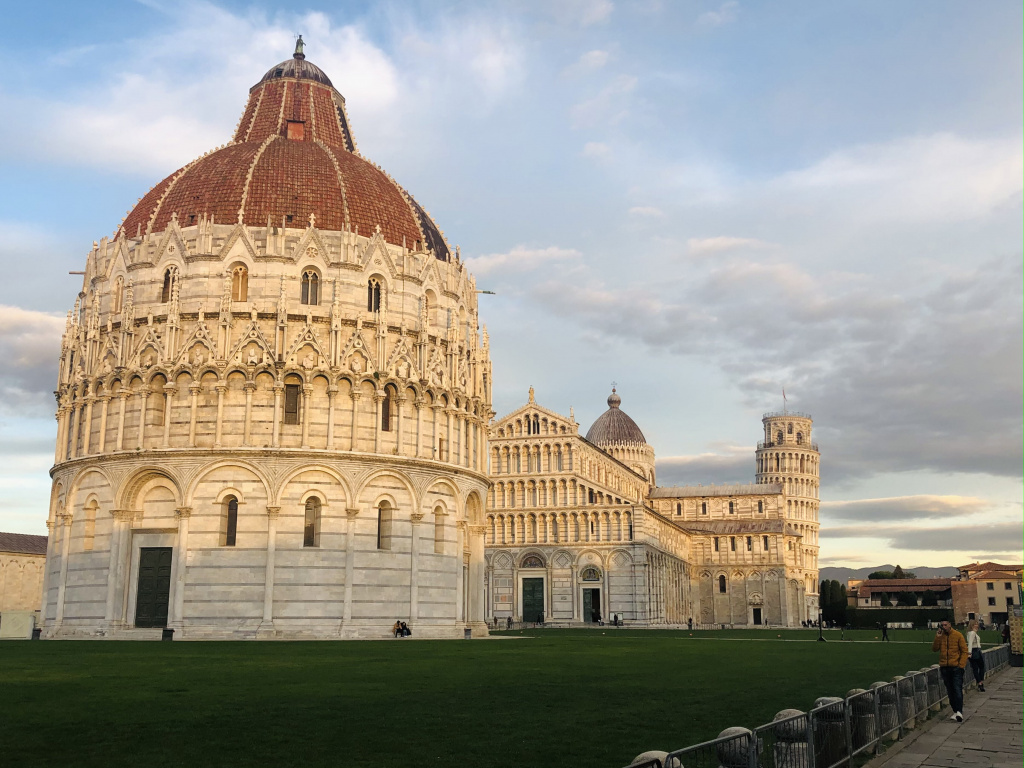

We were lucky to enter the double degree program with the University of Pisa, in accordance with it we spent the second year of study (2021/2022) in Italy. We entered the magistracy in 2020. Even while studying for our bachelor's degree, we came to Italy more than once, and in the 4th year we were on an internship at the University of Trieste. We really wanted to return to this sunny country, immerse ourselves in a different culture and improve our Italian. After all, one cannot become a good translator without having speech practice with native speakers and not knowing how they live. And, of course, getting two diplomas sounded very tempting. Therefore, when we had such a wonderful opportunity, we immediately got to paperwork.
Julia: Of course, studying in Pisa is completely different from MSLU, starting from the choice of subjects and ending with exams. In addition to the compulsory disciplines, each student can choose additional subjects that interest him to the individual plan. We studied Applied Linguistics, Foreign Language Teaching, Sociolinguistics, English and Italian. Learning a language consists of a theoretical course, speech practice and a literary translation laboratory. We really liked the practical lessons, though some of the theoretical material resonates with what we have already studied at MSLU. Of course, it's always interesting to look at familiar topics from a different perspective and get to know new theories. But exams were not easy for us. In addition, in Pisa, we had scientific co-supervisors who helped us in writing our master's thesis, for which we are extremely grateful.
I would like to highlight the hybrid format of studies: students can either come to university in person (reserving a seat in the classroom in advance) or connect remotely. For some, such covid restrictions were a blessing, but in the classrooms it was empty and even unusual.
Polina: In my opinion, MSLU has more practical subjects. In Pisa, we were closely involved in theoretical disciplines - we studied applied linguistics and teaching methods from scratch, for example. There are fewer homework assignments, but in order to successfully pass the exams, you need to commit to self-study. The course in each discipline is accompanied by an impressive list of literature - and yes, it really should be read.
We really liked the atmosphere: Pisa is a student city, and therefore the University has a fairly extensive infrastructure with several faculty buildings, libraries, cafes and dormitories, connected by a single information system, which is very convenient! The University of Pisa constantly holds events.
There were some difficulties, too. Due to the pandemic, we had to spend almost two weeks on quarantine, and then get vaccinated and deal with additional paperwork. Often there were other organizational problems in the course of training. In this regard, we wished we could get more support from the dean's office. The international situation also complicated our stay in Italy - the accounts were blocked, and it was a very long and difficult way to return home. Though, the University of Pisa provided Russian students with psychological support, we did not have any conflicts.
Julia: Italy is a beautiful country with amazing nature and unrivalled cultural monuments. In addition to studies, we tried to find time for traveling. We visited several cities of Tuscany, including Florence, Lucca, Livorno, Carrara, as well as Venice and Rome. We visited the carnival of Viareggio. This celebration of life impresses with its magnificent platforms and papier-mâché figures!
Polina: In your free time in Italy, of course, you need to travel! I visited several cities in Tuscany, I saw small Italian villages, I got to Venice. In Florence, I finally got to the Uffizi Gallery - I seized the moment on Christmas Eve, when there were few tourists. The University of Pisa, in particular, the Department of Slavic Studies, held open lectures on Russian writers and their relations with Italy, invited to film screenings, organized meetings with writers and group trips to museums - so, in December, I attended a meeting with M. Schraer, the author of the book Bunin and Nabokov. History of rivalry.
Julia: The double degree program allowed us not only to acquire new knowledge in the field of linguistics and translation and interpreting, but also to make many acquaintances with both Italian and other foreign students. This allowed us to continuously learn and practice the language. We have gained valuable experience of living independently in a foreign country and solving a wide variety of problems, broadened our horizons and deepened our cultural knowledge. At the end of the training, we will receive two diplomas - MSLU and the University of Pisa. This undoubtedly increases the competitiveness of a translator and opens up new career opportunities.
So, do not be afraid of difficulties, stock up on strength and nerves, read the recommended literature, travel in your free time and do not forget to relax! Oh, and one more thing - according to the local student superstition, you can’t climb the Tower of Pisa until you graduate, otherwise there is a risk of not graduating :)
Our special thanks to MSLU and the University of Pisa, the dean's office of the Faculty of Translation and Interpreting, the Department of international cooperation, the department of the Italian language and Italian colleagues for their assistance.
